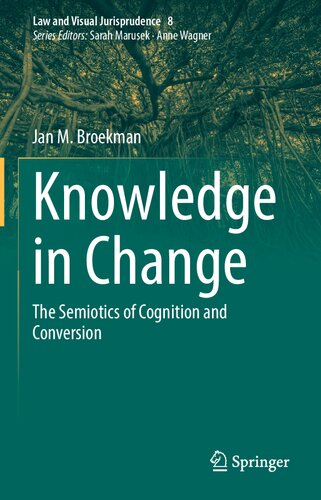

Most ebook files are in PDF format, so you can easily read them using various software such as Foxit Reader or directly on the Google Chrome browser.
Some ebook files are released by publishers in other formats such as .awz, .mobi, .epub, .fb2, etc. You may need to install specific software to read these formats on mobile/PC, such as Calibre.
Please read the tutorial at this link: https://ebookbell.com/faq
We offer FREE conversion to the popular formats you request; however, this may take some time. Therefore, right after payment, please email us, and we will try to provide the service as quickly as possible.
For some exceptional file formats or broken links (if any), please refrain from opening any disputes. Instead, email us first, and we will try to assist within a maximum of 6 hours.
EbookBell Team

5.0
60 reviewsAll knowledge is always a matter of change, as this book underlines. All knowledge links You and Me to Reality. This process of positioning cognition has become heavily influenced by conversion. Its cultural background is in this book named ‘the New Plural’: a worldview based on combinations of Analog, Digital, AI and Quantum understandings of reality.
The New Plural, combined with in-depth observations on the Subject in new forms of knowledge formation, forms the background theme of the book. To understand the Subject as defined in past centuries, like Kant’s so-called ‘split ego’ or Voegelin’s ‘flow’, are outlined together with Husserl’s ‘phenomenology of ego-positions’. Today, one encounters the Subject transformed into a Self with other forms that replace the traditional Subject and its position. The dynamics of the Self are therefore broader than any Selfie can picture. What the book calls ‘the Self in digital culture’ and for what it introduces the name Self-E, is therefore essential for a semiotic observation of all actual patterns and practices of communication.
The decentering of the Subject changed human cognition. The book introduces ‘The 3-S Triad’ (composed of the ‘Subject–Self–Self-E’), which has taken the place and functions of the classical Subject and its dynamics. Cognition has assumed a different position in the heart and mind of every human being. At the same time, the influence of ‘The New Plural’ has grown, making digital thought formation the leading pattern and foundation of today’s knowledge.
That different view on human identity made knowledge as understanding and its traditional grasping disappear. All fragments of planetary life were subjected to a newly conceived and often digitally anchored fitting. That forms one of the most powerful and global challenges to the human mind. What if we conclude about climate change that our knowledge fits the problems concerned? The book’s final pages outline an epistemological path through such complex …